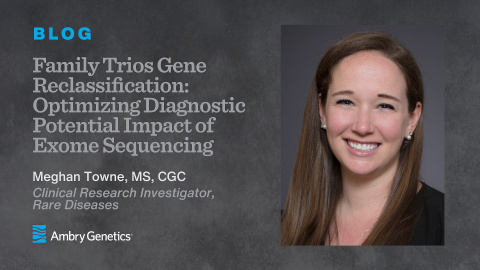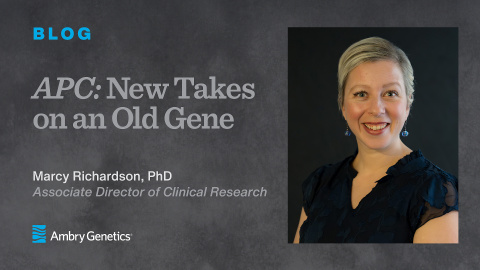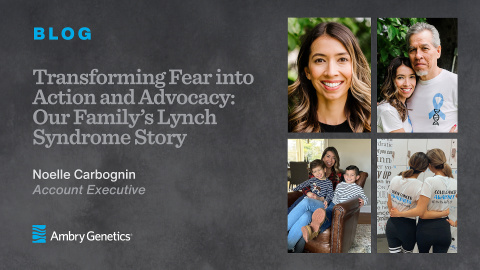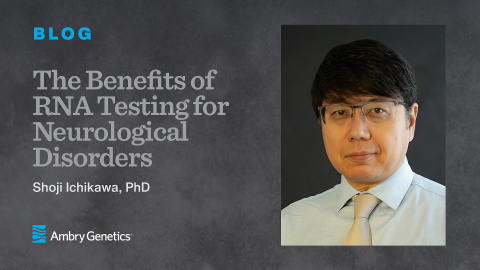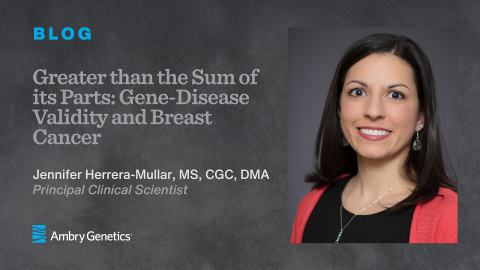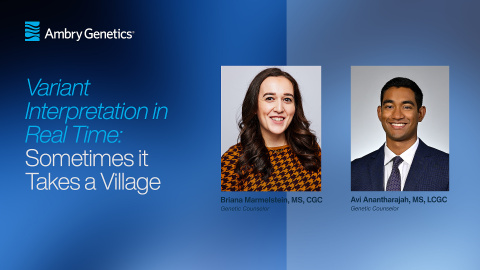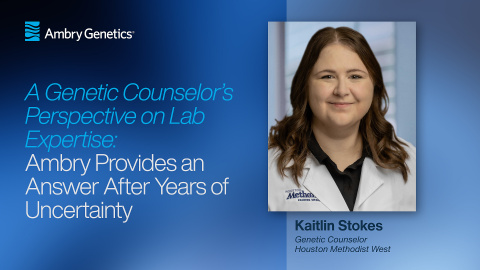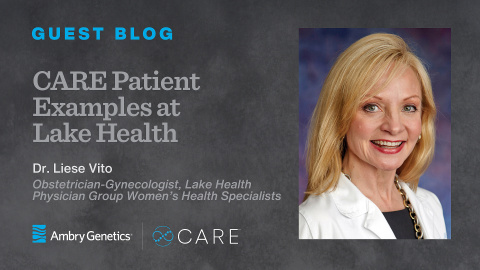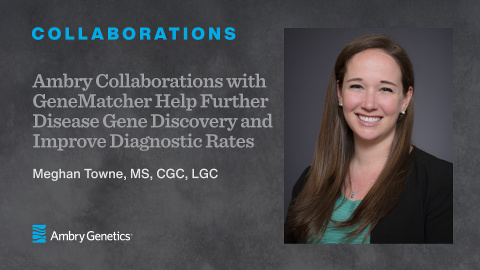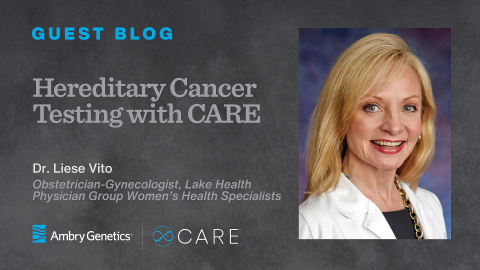- By Meghan Towne, MS, CGC, LCGC
- Posted April 2, 2024
Family Trios Gene Reclassification: Optimizing Diagnostic Potential Impact of Exome Sequencing
The ability of exome sequencing (ES) to detect variants across the genetic code makes it a powerful diagnostic tool, reducing the number of tests and time to diagnose patients with rare disorders. However, with this broad detection range comes the challenge of identifying which of hundreds or thousands of rare variants may be clinically meaningful…
- By Marcy Richardson, PhD
- Posted March 28, 2024
APC: New Takes on an Old Gene
A Brief History of APC The APC pathway was discovered in 1982 (more than 40 years ago!). APC is a tumor suppressor gene, meaning it helps the cell division process happen in a controlled way, which helps prevent tumor development. In 1991, Kinzler and Vogelstein discovered that pathogenic variants in the APC gene are…
- By Noelle Carbognin
- Posted March 22, 2024
Transforming Fear into Action and Advocacy: Our Family’s Lynch Syndrome Story
It has been almost 3 years since my father was offered genetic testing after developing three different types of cancers. He also had an alarming family history – multiple relatives with cancer, going back generations. After he received a positive result for Lynch Syndrome, putting him at an increased risk for colon cancer and other types of…
- By Shoji Ichikawa, PhD
- Posted March 19, 2024
The Benefits of RNA Testing for Neurological Disorders
Introduction Clinical genetic testing is a powerful diagnostic tool for neurological disorders. The utility of genetic testing can be diminished by the large number of variants of uncertain significance (VUS). Variant classification for neurological disorders has additional challenges because clinical evidence is often limited. The biggest limitation…
- By Jennifer Herrera-Mullar, MGC, CGC, DMA
- Posted March 5, 2024
Greater than the Sum of its Parts: Gene-Disease Validity and Breast Cancer
One in every eight women will develop breast cancer in her lifetime.1 Considering there are 167.5 million women currently living in the United States,2 on a population level, that is a large number of women who will develop breast cancer. The vast majority of breast cancer cases are due to a combination of factors including, but not limited to:…
- By Carrie Horton, MS, CGC
- Posted February 23, 2024
Variant Interpretation in Real Time: Sometimes it Takes a Village
Every individual's genetic makeup is unique, containing the blueprint for their health, including susceptibility to diseases and potential response to treatments. But understanding your genes is like deciphering a complex code. DNA varies slightly from person to person, and interpreting the medical significance of those differences, or variants,…
- By Meagan Farmer
- Posted February 21, 2024
A GC’s Perspective on Lab Expertise: Getting Answers After Years of Uncertainty
Kaitlin Stokes is a genetic counselor at Houston Methodist West in Houston, TX. She sees patients with personal or family histories of cancer that may be due to an underlying hereditary cause. We recently connected with Kaitlin about her role, and she shared, “I love what I do because I feel like I’m helping people. I’m giving them control…
- By Liese Vito, MD
- Posted February 7, 2024
CARE Patient Examples at Lake Health
Many patients are anxious about their family history—more than providers realize. In some cases, they may feel like a ticking time bomb with no options. In Part One of this blog series, I talked about The Ambry CARE ProgramTM and how Lake Health has been able to use it to identify more high-risk patients, increase family history and cancer risk…
- By Meghan Towne, MS, CGC, LCGC
- Posted January 30, 2024
Ambry Collaborations with GeneMatcher Help Further Disease Gene Discovery and Improve Diagnostic Rates
The Problem of Unsolved Cases While our knowledge of human genetics has grown significantly, many gaps remain in our understanding of genes and their contribution to human disease.1-3 We have a lot to learn: • Only about 16% of all the genes in the human body have an established disease association. • The genetic cause is known for…
- By Liese Vito, MD
- Posted January 24, 2024
Hereditary Cancer Testing with CARE
According to studies, 93% of high-risk women who qualify for breast MRI have not had one.1 97% of women at risk for hereditary breast/ovarian cancer have not had genetic testing.2 These healthcare gaps mean high-risk patients are being missed when it comes to proactive and preventative care. As a practicing OB-GYN for twenty years, I have seen…
